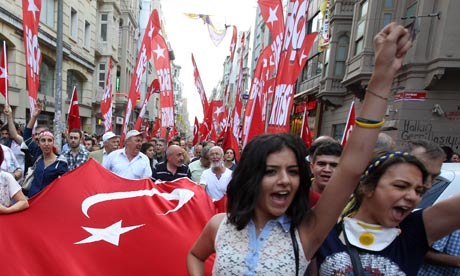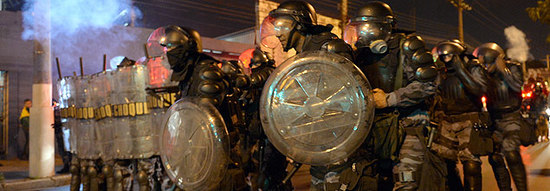During a recent visit to Istanbul, during the first week of the protests, I reread Erez Manela’s The Wilsonian Moment, a brilliant analysis of how US President Wilson’s liberal rhetoric of self-determination at the end of World War I led to popular uprisings across the Global South – among others, in Korea, China, India and Egypt. It is a classic example of what a good scholar of global history is supposed to do: connect the dots between several, geographically distant and seemingly disconnected events and tell a coherent and compelling story about how an idea – in this case, Wilsonianism – shaped history.
Jeremi Suri’s Power and Protest is another example of a book that connects the dots between the many protests that took place in 1968 in Beijing, Prague, Paris – even though, my colleague Matias Spektor recently pointed out, Suri could (and perhaps should) have included protests that shook the Global South at the time – for example in Brazil, Iran, South Africa and Argentina. One day, a scholar may attempt to connect all those dots and perhaps write the story about why the world seemed to collectively erupt back then.
These two examples show why observers of domestic politics should not be the only ones who think about current events in Turkey and Brazil – two major emerging powers, which often (including by myself) have been hailed as model powers of the 21st century. International Relations scholars have their work cut out as the world is trying to grasp whether there is a common denominator between current protests movements around the world.

Local contexts, of course, are vastly different – as they were in 1919 and 1968 – and Brazilian policy makers have turned out to be far more media-savvy than Turkey’s Prime Minister, who continues to blame “foreign actors” for the protests. Turkey’s youth are incensed at a completely different set of aspects than Brazilians, who are facing a World Cup and the Olympic Games in the coming years. And that may not be the end of it. As Elio Gaspari points out, “the same day the first protests started in São Paulo, the city’s mayor and the state’s governor happened to be in Paris trying to land yet another global mega event — the 2020 World’s Fair.” Izmir, ironically, is also a candidate.
And despite these obvious differences, it seems unlikely that historic protests in two emerging democracies ten thousand kilometers apart – occur at the same time by mere coincidence. Roger Cohen, has argued that “from Tunis to Istanbul, from Cairo to São Paulo, something essential has already happened. Fear has fallen. That in itself is a game-changer.” A decade or two from now, a more profound analysis of the commonalities and differences between the protest movements may be the greatest challenge when trying to understand the years of 2011-2013 – and who knows, perhaps they will one day be seen as a mere prelude to the great Chinese revolution.
Read also:
The case for a BRICS visa-free travel agreement
Photo credit: Yasuyoshi Chiba/AFP
Thanassis Stavrakis/AP Photo









